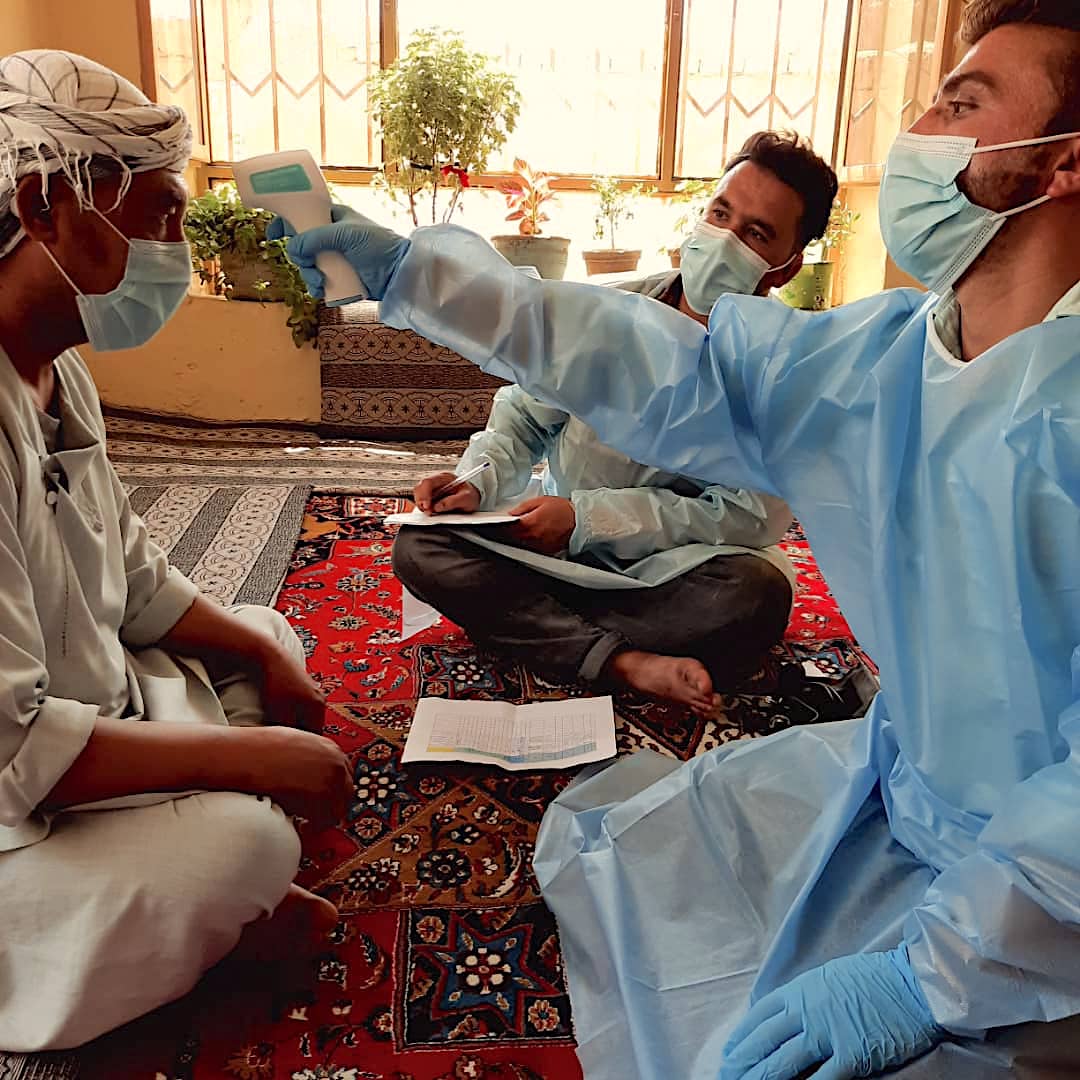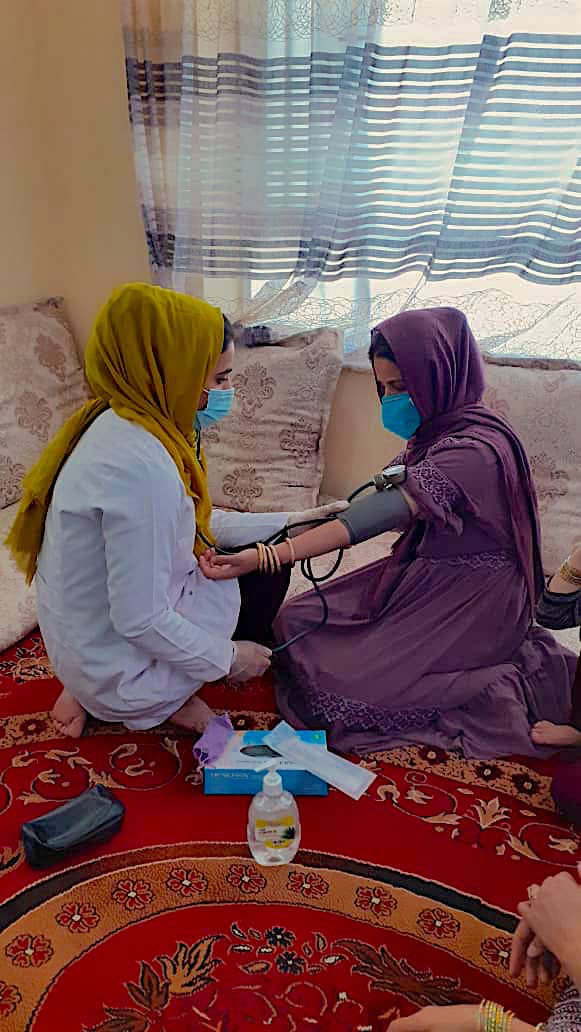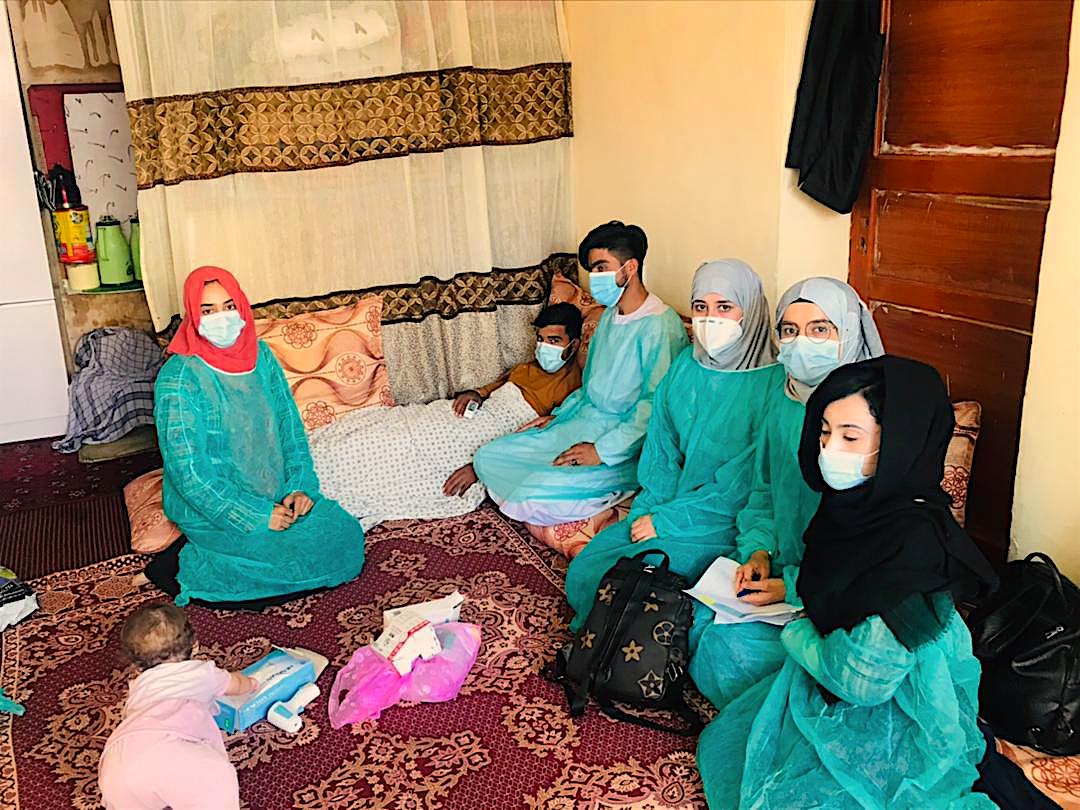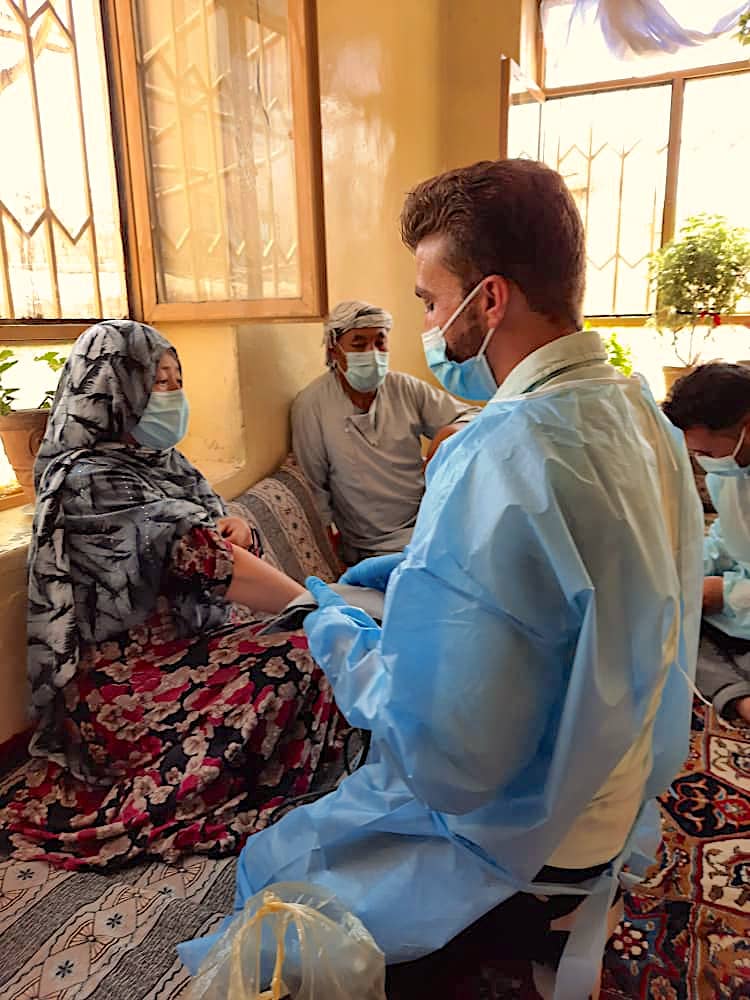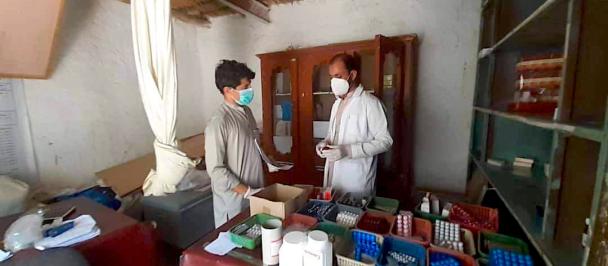UNDP supported Home-based care teams providing health care support to COVID-19 patients in their homes. Photo: MoPH / 2021
Afghanistan is going through a third wave of COVID-19 pandemic. The spread of the virus in the third wave exponentially reached record high of 2213 confirmed cases on 17th June 2021. As of August 2nd, 147,985 confirmed cases with 6,774 death have recorded. The actual infections and deaths could be much higher, as many of the cases are not recorded.
The health system has been responding to the pandemic with limited surge capacity. Load of patients on COVID-19 hospitals, especially in big cities like Kabul has been an issue of concern for the health sector. During the third wave, the bed occupancy rate of COVID-19 hospitals reached 100% and beds were fully occupied for several consecutive days. To reduce the burden of the patients on the hospitals and provide medical support to COVID-19 patients at their homes, UNDP established 20 home-based care teams to treat patients at their homes.
The teams are comprised of Medical Doctors, nurses and drivers who provide regular support to COVID-19 patients based on demand. The teams are based in dedicated COVID-19 hospitals providing home based care, general physical check-ups, health education, risk communication and sample collection from suspected COVID-19 patients at their homes.
With this initiative, the accumulation of patients and their relatives in COVID-19 hospitals has been reduced, freeing up hospital beds for patients in critical conditions. The alternative way of distributing health services will also positively impact the surge capacity of the Ministry of Public Health to provide healthcare services to all.
Acting Minister of Public Health Dr. Waheed Majrooh, applauded the support as instrumental for the health system to bring the pandemic under control. “To reduce the load on COVID-19 hospitals in Kabul, we have to provide care at home for mild and moderate patients. These 20 teams supported by UNDP are playing instrumental role providing treatment for patients,” said Dr. Waheed Majrooh. With the third wave of the pandemic underway, the three months programme was launched on June 26 and will continue until mid-September.
The contact details of the teams are publicly advertised to Kabul residents through MoPH social media platforms, where everybody can directly contact the teams to request support. In addition to home-based care, the teams are actively involved for health promotion, risk communication, referral of severe and critical cases, to hospitals.
From start of the home-based care programme in the last week of June, the teams have actively been providing healthcare services including risk communication in 25 municipalities of Kabul city. So far, the teams have visited 1125 households through which 441 female and 884 males were provided with COVID-19 related home based care services. Aiming to increase community awareness about COVID-19 and ensure preventive measures at community level, the teams provided risk communication sessions for 13930 individuals in Kabul city.
The programme has also reduced the risk of infection and eased the monetary cost and emotional toll of going to hospitals on patients and their relatives. 50 years old Najiba, who was examined and cared for by the home-based care teams appreciated the support provided by the teams. “I called the number provided by ministry of public health, when I felt shortness of breath, the team got to my home within an hour and provided me with treatment and care,” said Najiba. “I am grateful of the support and care they provided me.”
Dr. Farzad Kabuli, one of the supervisors of the home-based care project states that from the start of the project till now, the teams have visited and provided treatment for hundreds of mild and moderate COVID-19 patients. “Fortunately, our interventions have been effective. The patients who received the services are satisfied and appreciate the initiative. We have successfully managed mild and moderate cases of COVID-19 and referred server cases to the hospital,” said Dr. Kabuli. “Other services we provided include guiding the family members of COVID-19 patient on management of patient, risk communication and consultation of effective feeding for the patient during home-based treatment period.”
While the level of demand is high, and the teams are not able respond to the whole population, but this is just the beginning. The programme is proving to be very effective, and will be expanded if the need still exists in the next few months.
From the start of pandemic, UNDP has been supporting the Ministry of Public Health in fight against COVID-19. During the first wave of the pandemic, UNDP supported MoPH in establishing 108 mobile teams in 8 provinces. The teams collected 32,194 samples from suspected patient where 7,668 were tested positive. The teams had provided 36,729 risk communication sessions 988,161 people were informed about COVID-19 virus, its preventive measures and related risks.

 Locations
Locations